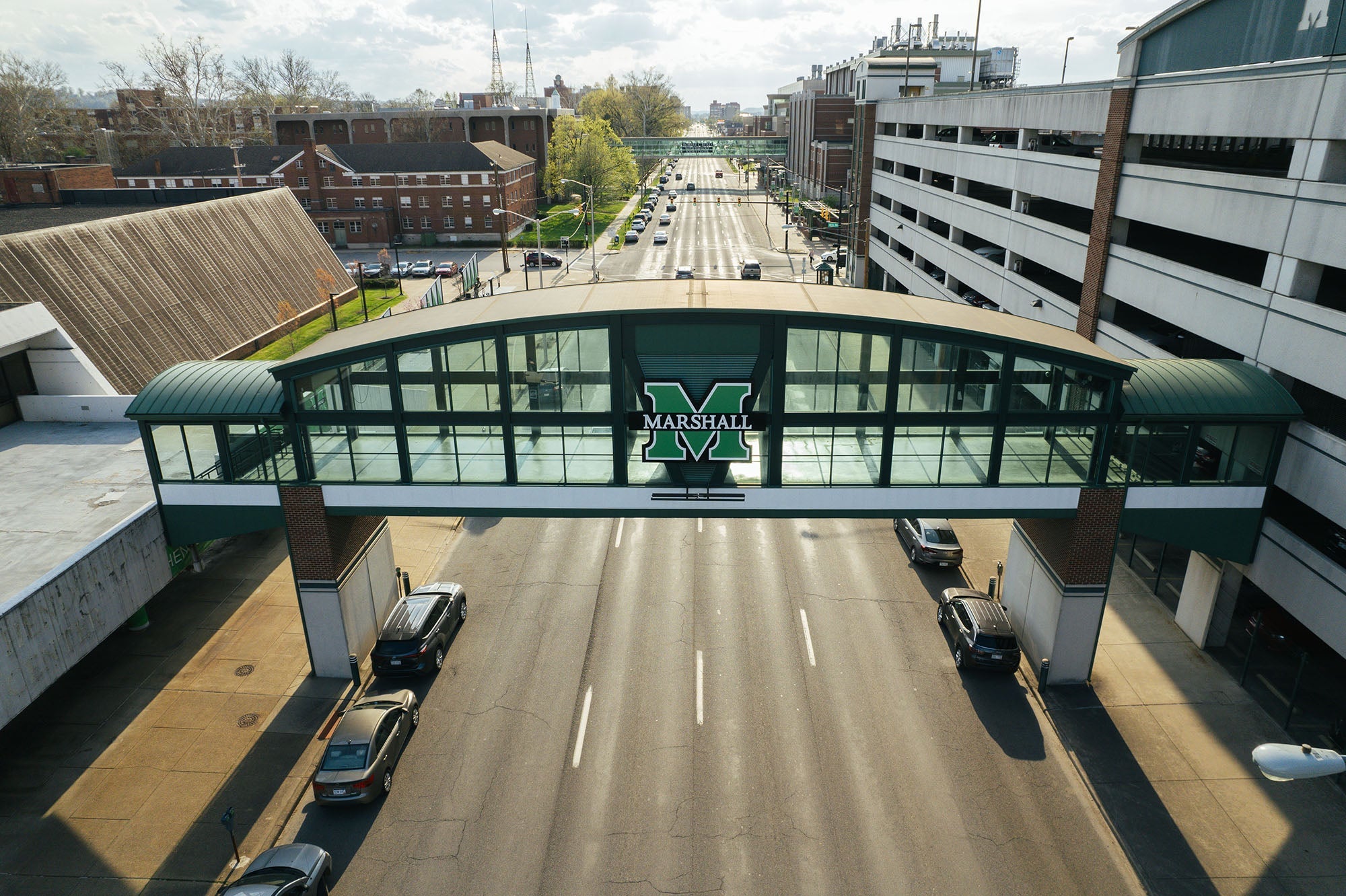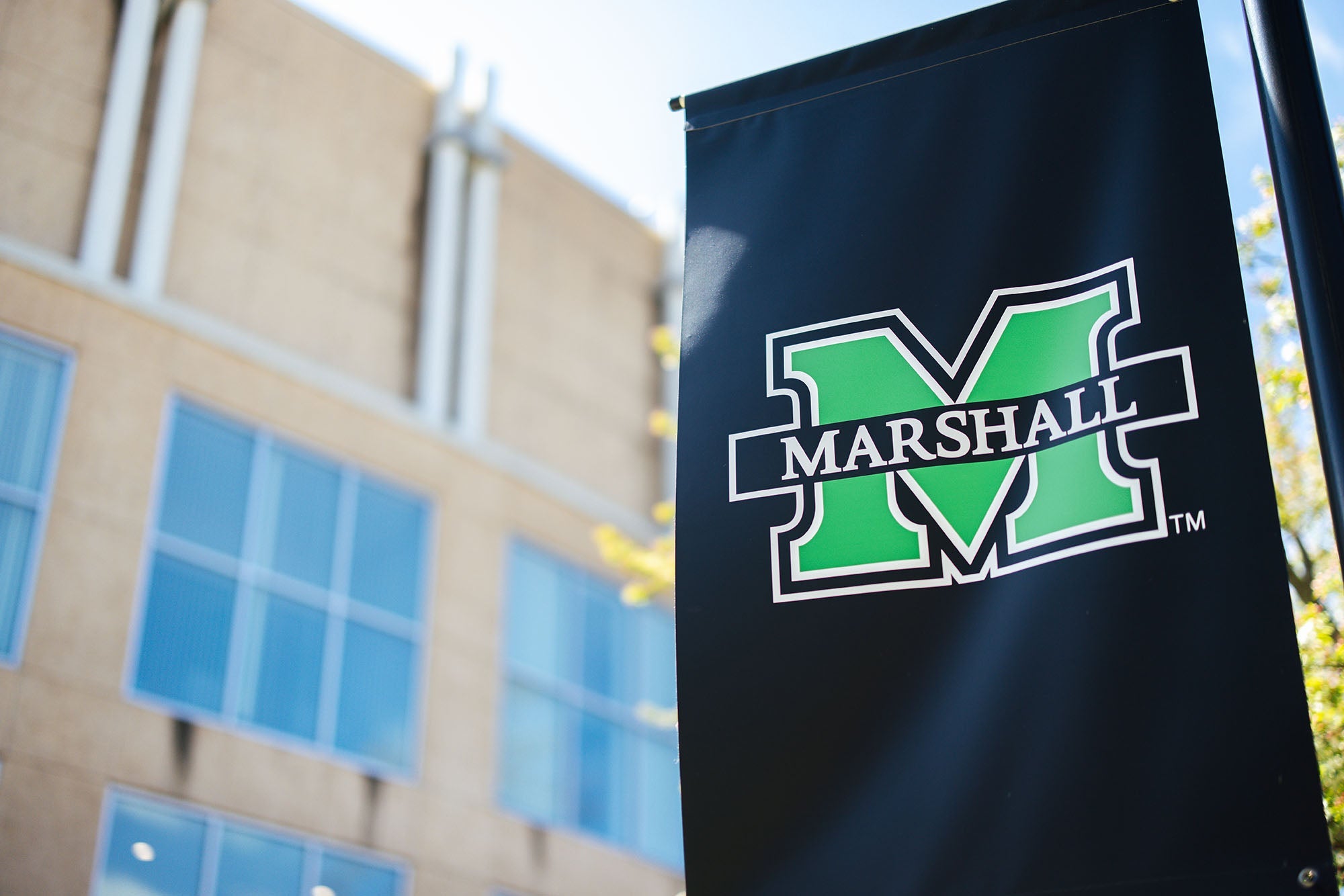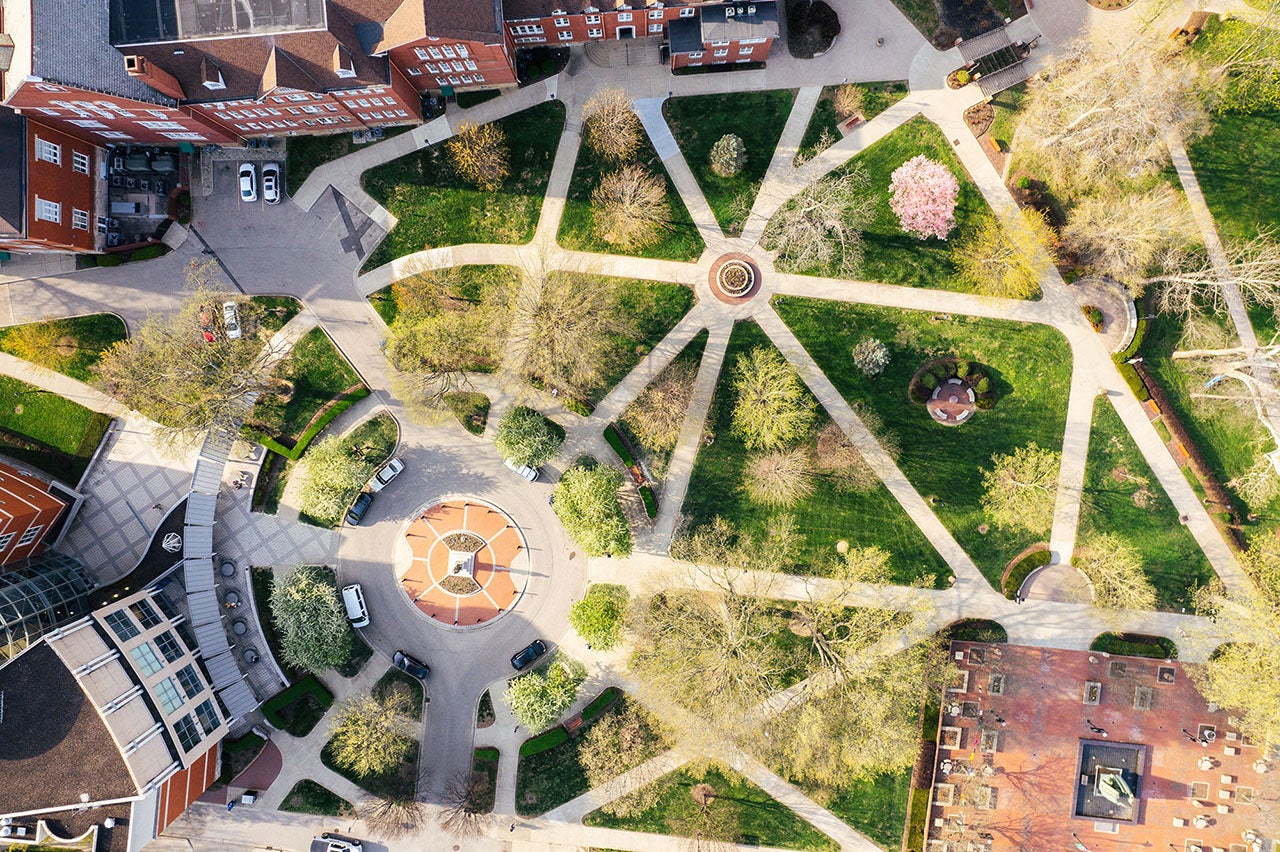

By virtue of West Virginia state law, University Police Officers have the same responsibilities and authority as that of any other law enforcement officers in the State. Uniformed officers provide 24-hour-a-day patrol protection to the campus, adjacent University-owned facilities and parking lots.
Officers are responsible for a full range of public safety and law enforcement related services including the investigation of all crime reports, medical emergencies, fire emergencies, traffic accidents, enforcement of state laws and all other incidents requiring police assistance within our jurisdiction which includes all University owned or controlled properties and/or all properties under the jurisdiction of the West Virginia Board of Trusties.
The Office of Public Safety prepares and submits a monthly report of incidents through a statewide system of crime reporting. These figures routinely become a part of the F.B.I.’s Annual Uniform Crime Report. As a means of better coordinating law enforcement efforts in the immediate area, we share information on arrests and all serious crimes with the Huntington Police Department and Cabell County Sheriff’s Department. Serial numbers of vehicles, office equipment and other items of value stolen in our jurisdiction are reported through the National Crime Information Center (NCIC).
All emergencies, criminal complaints, general requests for service and public safety concerns can be reported directly to the Office of Public Safety by any person in the University community.
Personal safety is foremost a personal responsibility. An important fact to remember on the topic of personal safety is the importance of being aware of your surroundings. Ask yourself, “Am I increasing the chances that I may become a victim of crime?” Personal crime prevention starts with the use of your common senses, easily ignored in our busy everyday lives. The following safety tips are nothing new, but it is important to be reminded of them from time to time. Remember that crime happens during the day as well as at night.
- DO NOT WALK ALONE! Use the buddy system or the Marshall University Police Escort Service, 696-HELP (4357).
- Do not walk in dimly lit areas or take risky short cuts. Use well-traveled and well-lit areas.
- Do not jog alone – run with a partner. It’s more fun and it’s safer.
- Do not carry large sums of money or flash money around. Money attracts attention.
- Do not wear walkman-type earphones, especially at night, while walking or driving. They can prevent you from hearing what is going on around you.
- If you feel that you’re being followed or you sense something is wrong, change direction or cross the street and head for a well-lit area, any occupied building or to an emergency phone.
- If you are threatened yell “FIRE” and not the word “HELP.” In today’s society the word “FIRE” attracts more attention. Remember the criminal does not like noise or attention.
- Don’t overload yourself with excessive books and/or other personal items when walking.
- Carry your purse close to your body and have the flap against your body. If a purse/wallet snatcher or mugger confronts you do not resist. Money, credit cards and other items may easily be replaced. You cannot. You should record all credit card account numbers and keep them in a safe place.
- Know where the MU HELP PHONES are located on campus and how to use them. They can be very important to you if you think you are in danger or being followed.
What is rape?
Rape is an act of violence when a person is forcibly sexually assaulted against her/his will. Not all rapes are sexually motivated: most are activated by the desire to control and dominate. Rape need not involve an assault by a stranger in a dark alley nor resemble sex scenes in films or novels. People can be and are sexually assaulted by friends, family, neighbors, dates, acquaintances, coworkers, etc. In many cases the rapist is known to the victim, often trusted.
What do I do if I become a victim of rape?
Secure your safety as soon as possible. If you are at home, secure your doors and windows as soon as the assailant leaves. If you are outside and seek assistance from strangers, be cautious. Victims have been attacked again by those they approached for help. CALL a friend or counselor to be with you through the medical examination and police reports. It is important to see a doctor as soon as possible Do not bathe, douche, or change clothing until you have been examined by a physician. Save all torn or stained garments. Report the rape to the police or Campus Public Safety. Your decision whether or not to prosecute is your own, but it is extremely important to report the attack. Reporting the attack may prevent another person from being raped. Avoid touching anything that the assailant touched. Fingerprints may be important if there is an investigation. Contact the Marshall University Women’s Center or Marshall’s Counseling / Health Center.
Acquaintance Rape
Acquaintance rape occurs when an individual is forced by someone he or she knows to participate in sexual activity. Threats and intimidation, as well as physical restraint are often present in an acquaintance rape situation. Acquaintance rape is the most common form of rape on college campuses. Acquaintance rape occurs most often during or after social events such as parties at bars, fraternity/sorority parties, or other places where students may socialize while using alcohol or drugs. It can even occur on a date.
We have certain expectations about what men’s and women’s roles should be and at times these expectations conflict with our true feelings. It is the responsibility of both men and women to communicate their feelings directly and to respect each other’s right to say NO.
Ways to Avoid Acquaintance Rape
Be assertive and sure of what you want to do. Make plans ahead of time so that someone will know where you are. Pay attention to what is happening around you. Do not put yourself in a vulnerable situation. Avoid excessive use of alcohol or drugs. They interfere with your ability to communicate and increase your chances of being assaulted. Make conscious and active choices. Say what you mean and express what you feel. Most of all, do not be afraid to say “NO”.
Why should I care?
Rape and sexual assault are serious societal problems that you, or someone you know, may encounter. No age, sex, race or economic status is exempt. Each of us is a potential victim. If we increase our awareness of this problem and take precautions, we can decrease the chances of being a victim. This page has been created to heighten your awareness of rape and to let you know about the services that are available at the University and in the surrounding community.
It’s important to use safe practices when you are living in the dorms here at Marshall. Your dorm room is your “home-away-from-home”, so you should feel safe there just as you would at your house. Sadly crime still occurs in the dorms, especially theft and vandalism. Here are some helpful hints to help you reduce the chances of becoming the “victim of crime.”
- Do not prop open any exterior locked residence hall door. Even though propping the doors makes it easier for you to get back into the residence halls, you also have made it easier for the unauthorized person to enter the building. For the safety of you and others in the residence halls, do not prop open any exterior doors because you don’t know whom you may be letting in!
- Lock your door when you leave and take your keys with you, no matter how long you will be gone-even when you go to the bathroom. It only takes a few seconds to be “ripped off”.
- Lock your door when you and/or your roommate are sleeping.
- Do not leave notes on your door stating that no one is in or when you will return. It’s an open invitation for theft.
- Keep wallets, purses, checkbooks, and jewelry out of sight and locked up if possible. Do not keep large sums of money on hand and routinely check your checkbook to see if any checks are missing.
- Keep a record of all your valuable items, noting description, serial number and approximate value of the items. In some cases you should consider taking pictures of them. These records should be kept in a secure location.
- Check with your parents’ insurance company to see if your property is covered under their homeowners policy while you’re living at school.
- Do not loan your room key to anyone. Do not attach your keys to your university ID. It’s another invitation for theft.
- Do not allow strangers into your room.
- Do not open your door unless you know who is on the other side, especially at night.
- Do not allow door-to-door salespeople to enter the residence hall or your room. Marshall University policy prohibits soliciting in any building without prior written approval from the University.
- Report any suspicious person or activity to the University Police, 304-696-4357.
- Do not prop open fire doors; they are closed for your protection.
- In case of fire do not use the elevator. It could become a death trap for you.
- Do not overload electrical outlets.
- Do not use any type of open flame.
- Do not tamper with or remove any smoke detectors or fire extinguishers. This is a punishable offense!
- Do not pull false alarms. Not only does a false alarm cause an inconvenience to others, but it could be dangerous.
- To report any fire call the Marshall University Police, 304-696-4357.
The “office criminal” is usually a criminal of opportunity. The criminal selects the time and location for the crime. The victim is not selected but is a matter of chance. The thief will find an open, empty office and take whatever he thinks he can obtain successfully. This is also true of attackers. If a criminal can commit his crime with little or no risk involved he will do it. Our goal is to increase the criminal’s risk of apprehension! A criminal doesn’t want to get caught; therefore, he will avoid “high risk” areas.
Personal Safety
- Don’t make travel patterns. Change your route, time, etc.
- Don’t stay in an empty building alone, especially at night.
- When walking in hallways, turn corners at a wide angle; this will give you more time to react to an attack.
- If you must go in a building, have someone stay with you or at least tell someone where you are, how long you’ll be there, and a phone number where you may be reached.
- Use the “Buddy System” whenever possible.
- Any time you are alone keep your office door shut and locked: install and use a peephole.
- If you are riding in an elevator, stand near the control panel so you will have easy access to it if necessary. If someone is on the elevator when it arrives wait for the next one to come. If attacked in an elevator hit as many buttons as you can (except for the stop button).
- Make it a strict policy not to give out phone numbers or addresses of fellow employees. Get a name and number and have the employee return the call.
- Keep all rooms, closets, or other small areas locked when not in use. They may be used as a hiding place.
- If you notice a suspicious looking person in a hallway, take a good look at them and call the Marshall University Police Department immediately. Don’t ignore the situation; the M.U. Police want to know about the suspicious person.
- Avoid secluded areas.
- Carry a whistle or other noise maker of some sort.
- Keep private rooms locked at all times. If they cannot be locked, have one installed or install a bell to alert you if someone is entering.
- If you notice anything out of place in an office, do not enter; call Marshall University Police to check it out.
- Don’t keep scissors, letter openers, or other sharp objects on top of your desk.
- Keep the Marshall University Police number (4357 or HELP) near your telephone.
- Avoid walking alone at night. If it is absolutely necessary, stay in well populated, well lighted areas. Also, when walking outside, turn corners at wide angles.
- Before entering your vehicle, look in the back seat or anywhere else an intruder might hide. When driving, make sure that your doors are locked and windows are up to a point where an arm cannot enter.
Theft control
- Don’t leave valuables in your desk or locker. If this is impossible, keep them in a cabinet which is kept locked at all times.
- Safeguard credit cards. Keep a list of credit cards along with account numbers in a separate place.
- Never allow anyone to remove office machinery until the person has been identified and removal has been authorized.
- If you walk in on a burglar, or are approached by a robber, follow the thief’s instructions exactly. Be observant and get a good description.
- Don’t carry a wallet in your rear pants pocket. If you must, turn it sideways so that it will not come out.
- Don’t carry excessive cash while at work. On payday don’t endorse your check until the time has come to cash or deposit it. It is wise to deposit most of your check and write checks for necessary items. If excessive amounts of cash are needed, keep it somewhere other than your wallet, such as a make-up case, a tissue pack, etc. Even better, separate it from your purse altogether.
- Don’t leave your work area unattended at anytime unless your door is closed and locked.
- Maintain an accurate inventory of personal items as well as supplies and equipment in your work area.
- Keep all storage areas and desk drawers locked except when needed.
- If on the first floor, be sure to lock windows when the office is unoccupied even during the day.
- Maintain an up to date list of personnel who have access to your particular work area. Double check when an employee leaves or is terminated that all keys are returned.
- Report all Crime or suspicious situations immediately to the Marshall University Police Department. 696-4357(HELP).
All members of the University community are urged to lend their support both in reporting crimes and practicing preventive measures to reduce them. Effective law enforcement and protection requires citizen cooperation and assistance. The rapid and successful detection of crime and the apprehension of criminals depend heavily on the speedy reporting and dissemination of facts to University Police. We all share the responsibility for making Marshall University the safest possible place in which to learn.
One of the major expenses of attending Marshall University is the cost of textbooks. According to the Marshall Bookstore, the average student spends $250-$300 per semester on textbooks. And, because textbooks may be re-sold for cash, they make attractive targets for thieves. Throughout the year the Marshall University Police receives many complaints of book theft, especially at the beginning and end of the semester and around the holidays. The University Police Department offers you several tips that will reduce your chances of being a victim of book theft.
- Never leave your books or book bag unattended. As soon as you know that you have bought the right books for your classes write your name on the inside cover of the books. Also, put identifying marks or your name on several pages of the book , perhaps in the margin on pages 50, 75, and 125. This will help to identify your books if they are stolen.
- Make a list of your books and include the name of the book, type of book, the author and any identifying marks to help The Marshall University Police Department in the recovery of the lost or stolen book.TIP: With the ease of digital cameras, it would be a good idea to take photo’s of your books so police and bookstore officials can easily identify them.
- Report any book theft to the MU Bookstore and the Marshall University Police as soon as possible. Delaying at all makes the likelihood of recovering your books drastically less.

